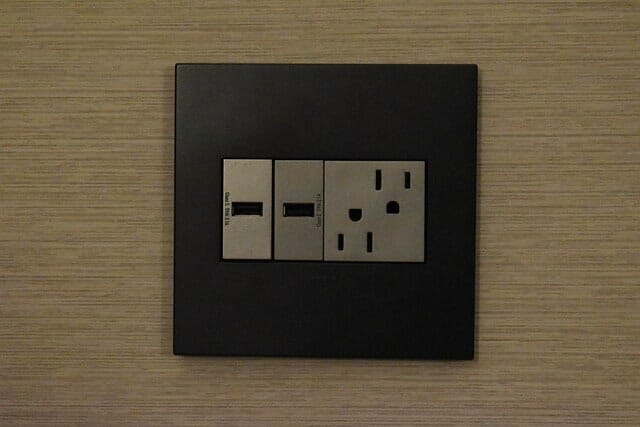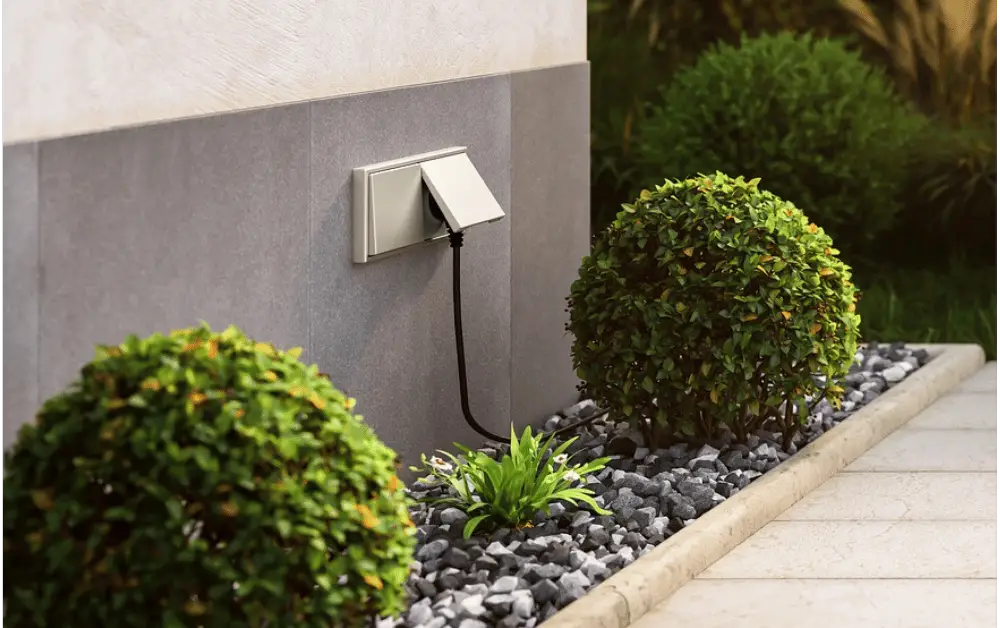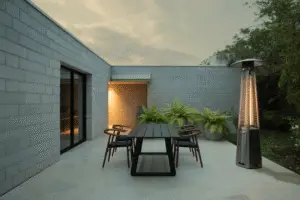Have you abandoned your hot tub or electric grill just because the thought of having to use countless extension boxes puts you off? You can turn that around by installing an outdoor circuit in your home.
Choosing to do this might raise questions like, can an outdoor outlet be installed by someone with zero knowledge of how circuits work? Is an outdoor circuit safer than using extension cords? Do outdoor outlets need to be on their own circuit?
Outdoor outlets do not need to be on their own circuit. However, some people would prefer individual circuits due to safety concerns. If the outdoor circuit is installed correctly and safety measures are adhered to, the outdoor outlet should not require its own circuit.
This article would give you a clear understanding of the various concerns associated with outdoor circuits, factors to consider when installing them, and safety measures that you must strictly adhere to.

Do Outdoor Outlets Have To Be GFCI?
One reason why some people would dread having an outdoor outlet is that they feel it’s unsafe. If I’m being honest, to some extent, their concerns are valid.
I’ve seen houses with their outdoor outlet just a few metres away from the pool and about 2-3 metres above the ground. That is a disaster waiting to manifest.
To keep you, your home and loved ones safe, every outdoor outlet requires a Ground-Fault Circuit Interrupter (GFCI). What does this do, and how does it relate to outdoor outlets?
The GFCI is a rapid response circuit breaker that shuts down the power if it detects any ground-fault sign within a stipulated time, usually anywhere between 1-30 seconds. It works by evaluating the current going through the outlet into the appliance and back to the outlet to detect any irregularities.
If a wire breaks, gets wet or malfunctions, it can result in severe damage. You wouldn’t want to be electrocuted while walking in your backyard or having some alone time in the pool. This is where GFCI comes in.
It restricts electricity from leaving the circuit and going into the ground to cause an incident. It is like a containment/isolation centre but for electricity. They function like circuit breaker’s but faster!
How Far Off The Ground Should Outdoor Electrical Outlets Be?
Every state has laws that guide the installation of outdoor outlets. These laws are to keep people and properties safe by all means necessary.
If you’d like to power your outdoor appliances without connecting long wires, installing an outlet might be the way to go, but before doing so, you have to ensure all safety standards are met. One essential bar that bears mentioning is how far off the ground should the outdoor electrical outlet be.
Electrical outlets must be at least six feet off the ground. This way, it drastically reduces the chances of a ground-floor incident that could occur as a result of weather conditions, facilities in the area of an electrical mishap.
Other things that you should note before installing your outdoor electrical outlet include:
Outdoor Outlets Must-Have Weather-Resistant Airtight Covers
If you plan to install an outdoor outlet in your backyard, you have to ensure it must be airtight. If you install the electrical output when the weather is cool and calm without a cover, what happens when it rains?
Would you have to shut it down till the weather becomes favourable again or risk it? My best advice is to do neither. Simply install the best outdoor outlet available on the market within your spending budget.
If you’re not sure which power outlet works best for you, it’s advisable to seek professional help. Do not assume you know about electricity and try to cut wires open. I also thought I was an expert at electrical works, and this was a warning I wish I got before drilling a hole in my basement that had me unconscious for a split second.
Electrical Digging Must Be Done By A Professional
Most outlets have to be installed close to a circuit in the house. If there’s none close intended outlet spot, connections have to be run from the nearest available source. In most cases, there has to be some digging and passage of wires.
I strongly recommend a professional. If you don’t have the necessary skills, on no count should you want to do this yourself. For your safety, let it be handled by someone who has the experience.
Run Several Tests Before Constant Usage
Once you’ve successfully installed the outlet at least 6 feet above the ground, test the appliances to see if the voltage might cause any power irregularities or something in that line. When it comes to electricity, one can never be too careful.
If the weather gets extreme, you might need to turn off certain appliances. You might not be able to spot the wiring of the outlet in such a situation. If the outlet is not properly installed, it could result in an accident. This is why everything has to be working perfectly before tagged as ok and safe.
Does Outdoor Electrical Wire Need To Be In A Conduit?
Yes! A million times, yes! If you’re passing the wires through the ground or against the wall, you need a conduit to protect the cables.
A conduit is like a pipe, or a tube often used to protect wires from exposure or damage. If you want your outlet to be at point A and the nearest circuit is at point D, you’d need outdoor wires to achieve this which is where conduits come in.
Think of it as a protector that keeps the wires in even if an incident occurs. It helps to bring power-related accidents to the barest minimum.
The possibility of power related incidents cannot be totally ruled out. If and when a mishap occurs, you need to have something that keeps the wires contained until the situation can be controlled. This is why conduits are non negotiable.
Conclusion
Having to pass wires all over the house could be stressful and very dangerous. This is why outlets are the way to go.
While installing your power outlet, keep all the safety measures in mind. There’s no such thing as being too careful when electricity is involved.











